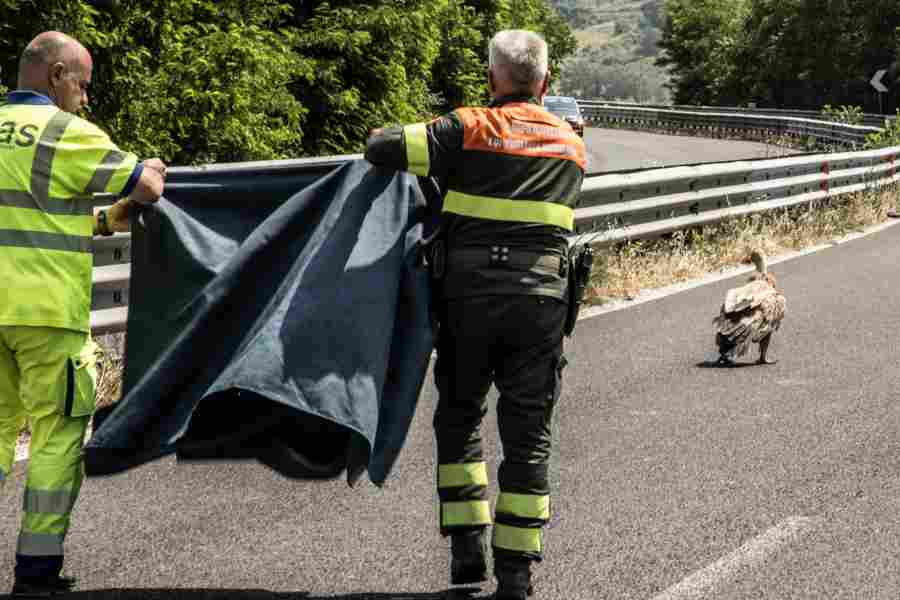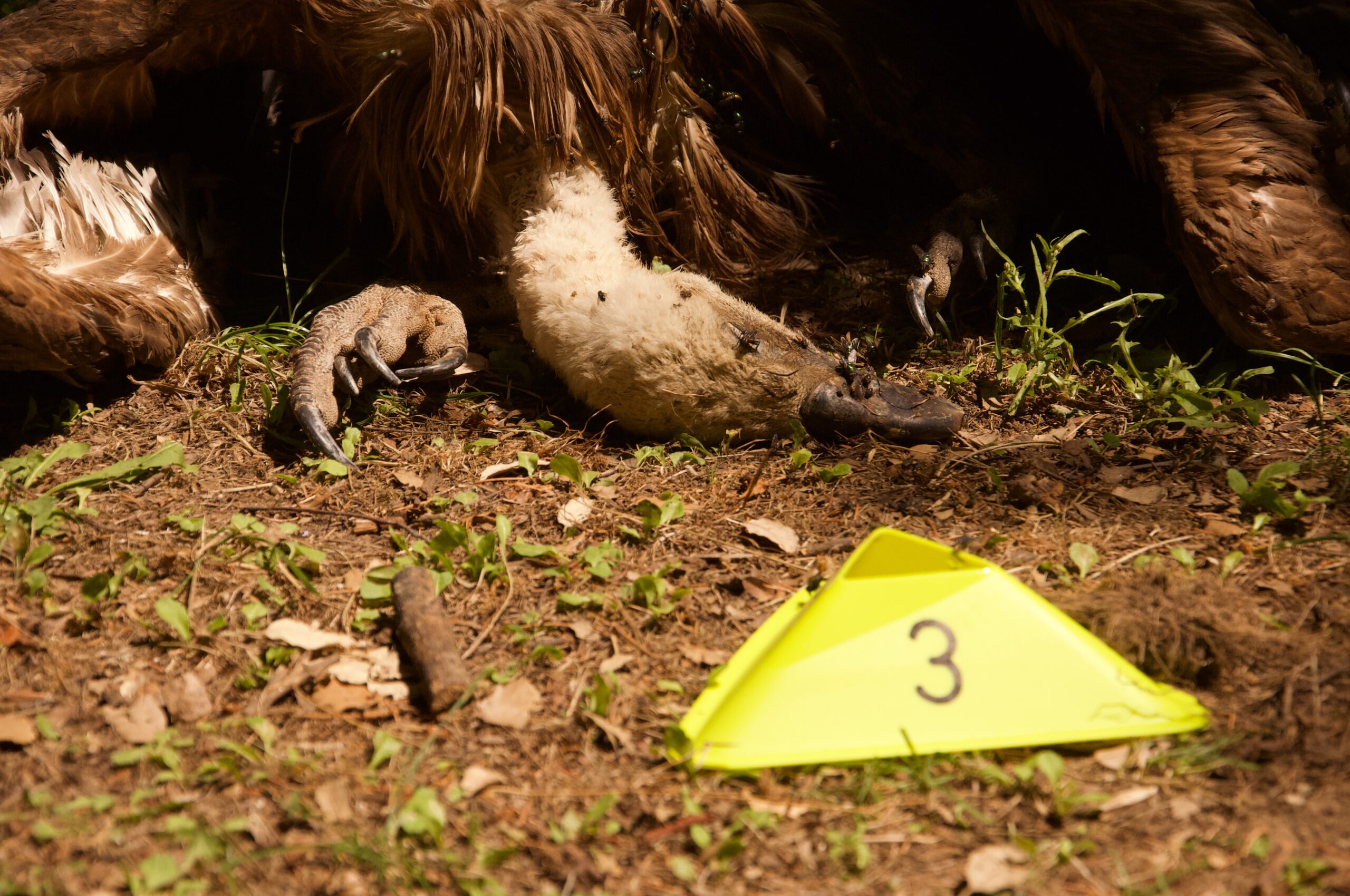
Poisoning is considered the biggest threat to vultures worldwide, according to the Vulture Multi-species Action Plan (Vulture MsAP), co-developed by us here at the Vulture Conservation Foundation, and endorsed by the Convention for Migratory Species (CMS). And in Cyprus, it is no different. Based on the data analyzed by BirdLife Cyprus (BLC) within the LIFE with Vultures project, a third of the Griffon Vulture population on the island died over the past five years due to the illegal use of poison baits.
Various animals fall victim to poisoning in Cyprus
Even though the use of poisoned baits is illegal in Cyprus and Europe, it remains a severe problem in the Cypriot countryside and the primary reason behind the collapse of the Griffon Vulture (Gyps fulvus) population in Cyprus. As part of the Life with Vultures project, BirdLife Cyprus collected data of the use of poisoned baits provided by the Game and Fauna Service, the Veterinary Services as well as by the Committee Against Bird Slaughter (CABS) from field records over the past five years.

The BLC team analyzed the data to help understand and address the problem. Based on the research, from 2015 until today, 39 confirmed cases of poisoned bait use have been recorded in the countryside, with 63 animals impacted. The 39 incidents are most likely a conservative number, as many incidents are never identified or even reported. The most common victims are dogs and cats, but also wildlife species, among them rare and endangered species such as the Griffon Vulture. Due to this illegal practice, in the last five years, Cyprus lost one-third of the Griffon Vulture population due to a single incident of mass poisoning in 2016. Given the small and vulnerable Griffon Vulture population in Cyprus (20 individuals), the slow reproduction rate of the species and the fact that these birds forage and feed in large numbers, the presence of this threat in the Cypriot countryside is extremely worrying for the future of the species in Cyprus.
Use of banned substances on the island

The analysis showed that the substances used in the vast majority of cases are pesticides from carbamates, which are banned throughout the European Union and are highly toxic to both animals and humans. Their wide use causes concerns about the import and trafficking of these banned pesticides in Cyprus, but also the relatively easy access that perpetrators have to these particularly dangerous toxic substances.
Perpetrators of wildlife poisoning not convicted
As evidenced by the recorded incidents, the authorities have never taken substantial action to investigate and prosecute cases of illegal wildlife poisoning. To assist the authorities with the investigation of such cases, the “Life with Vultures” project will create and provide tools, which will be at the disposal of the competent law enforcement authorities. Importantly, the Poisoned Bait Detection Dog Unit will be formed operated under the Game and Fauna Service, and will significantly assist in the work of investigating and prosecuting the perpetrators.
Incentives for the use of poisoned baits
The placement of poisoned baits often takes place to protect livestock animals from other predators, such as foxes and stray dogs. In some cases, poisoned baits are used in hunting areas to exterminate foxes but also for deliberate poisoning of domestic animals like dogs in retaliation among neighbours, hunters and farmers/livestock breeders. However, the use of poisoned baits is a hazardous practice and a non-selective method of exterminating animals. This means that by placing a poisoned bait, not targeted animals can fall victim to poisoning, with vulture species one of the most commonly affected animals. In addition to wildlife, poisoned baits are also a deadly threat to pets, and ultimately to humans, since when some of these substances get in contact with skin or inhaled, they can have adverse effects on human health.
Fighting this problem requires a team effort at all levels: from the people who work in the countryside every day to the rural communities and to the law enforcement authorities who protect wildlife. The LIFE with Vultures project team calls on all those who realize the existence of poisoned baits in the countryside and especially hunters to report the incidents to the Game and Fauna Service and in case their dog falls victim to poisoning to report it to the Police.
LIFE with Vultures

LIFE with Vultures is a targeted conservation project for the protection of the Griffon Vulture in Cyprus. In this four-year endeavor (2019-2023), BirdLife Cyprus, the Game and Fauna Service, Terra Cypria – The Cyprus Conservation Foundation and the Vulture Conservation Foundation have joined forces to tackle the main threats facing the Griffon Vulture and prevent Cyprus’ most threatened bird of prey from going extinct. The project has a 1,375,861 Euro budget and is co-funded (60%) by the EU’s LIFE programme.




